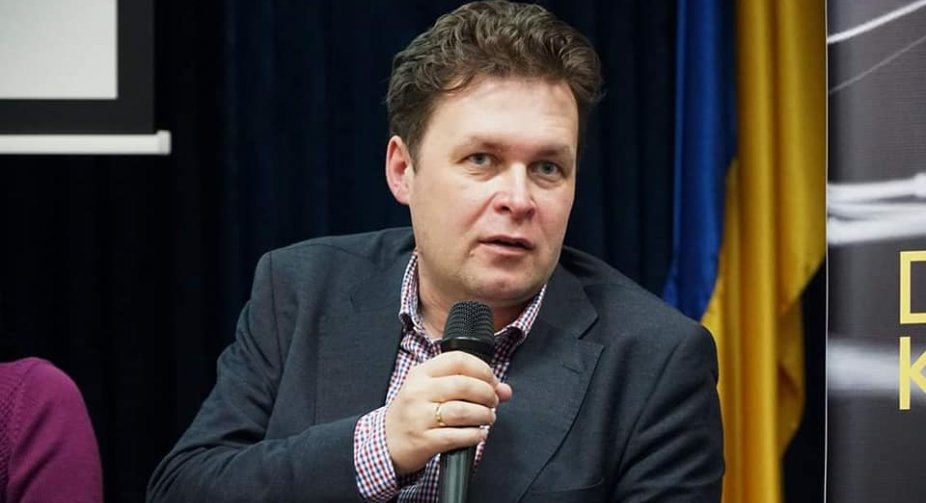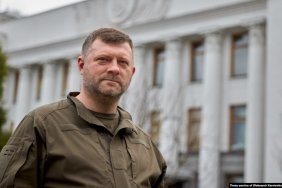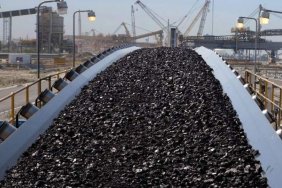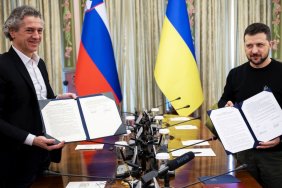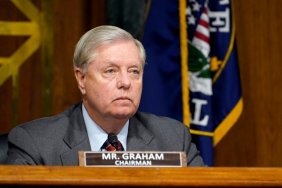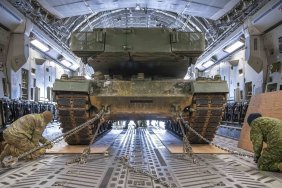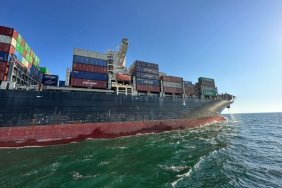The political significance of Anthony Blinken's meetings with President Volodymyr Zelensky and ministers Igor Lavrov and the general state of affairs in today's Ukraine is assessed for FrontNews by Yevgen Magda, political scientist and director of the World Policy Institute (Kiev).
Yevgen, what, in your opinion, did the meeting between Anthony Blinken and Zelensky yield?
Yevgen Magda: I think that Anthony Blinken's visit to Kiev was a part of the US Secretary of State preparation to the negotiations with Sergey Lavrov that will take place on January 21. The head of U.S. diplomacy communicated with allies, honing his position in future negotiations. The U.S. strongly emphasizes its support for Ukraine, and in the context of his visit it was readiness to provide Ukraine with another $300 million in aid.
By the way, there is a sub-question: is Ermak's resignation, which the USA demands, coming?
Yevgen Magda: I do not think that Andriy Ermak's resignation as head of the presidential office is realistic. He has closed important international contacts and is actively commenting on what is happening in the world without any authority to do so. In my opinion, he feels like a producer of Zelensky.
Today there is a meeting between Blinken and Lavrov. Why is this meeting necessary? Hasn't Moscow been shown the position of the West?
Yevgen Magda: Negotiations are part of the political culture of the West, and Russia is well aware of that. Anthony Blinken emphasized in Kiev that there would be no written answers to the "security guarantees" offered by Russia, and a number of them were unacceptable. But the U.S., as the most powerful state in the world, cannot afford to ignore the negotiation process, because otherwise it would simply be accused of cowardice. Russia is betting on an emphatically boorish manner, while the U.S. and the West are also toughening their rhetoric. I note that the Kremlin is emphasizing its intention to discuss security guarantees with the West, while ignoring Volodymyr Zelensky's calls for direct talks with Vladimir Putin. Russia emphasizes in every way that it has nothing to talk about with Ukraine, suggesting that it should engage in dialogue with the Kremlin-controlled puppets in Donbas.
As Biden stated, Russia is looking for its place between China and the West, so war is undesirable for Putin. But what objective factors provoke war and what factors deter it?
Yevgen Magda: First and foremost, the war has been going on since 2014, with about 14,000 victims. Russia can expand its aggression, but then economic sanctions announced by the West await it. On the other hand, the unprofessional management of the Ukrainian economy has made our country vulnerable. And Russia, as it sometimes seems, only needs to exert psychological pressure and wait for a collapse in the energy sector, from which Ukraine is not guaranteed. The West rather unexpectedly for Russia vigorously supports Ukraine, at least in words, although the UK has supplied several thousand anti-tank weapons, the Ukrainian military also has the American Javelin and Ukrainian Stugna anti-tank missile defense systems in its arsenal.
According to Russian presidential spokesman Dmitry Peskov, Russia is ready to meet with President Volodymyr Zelensky anywhere. However, it is ready to discuss only the implementation of the Minsk agreements. But as far as I understand, these agreements no longer exist, they are unenforceable?
Yevgen Magda: Putin is not ready to meet with Zelensky because he would be obliged to talk about Donbas and Crimea, and the Kremlin does not like these topics. Therefore, the Russian Federation is persistently trying to put Ukraine at the table of direct negotiations with its puppets, but without success. The Minsk agreements exist because politically Ukraine, Germany and France cannot afford to withdraw from them, and Russia simply does not intend to implement them.
The West insists that Russia has failed to fulfill its part of the Minsk agreements, but Russia points out that point 11 (no constitutional reform) has not been implemented. What is the final solution? Has Ukraine withdrawn from these agreements or is it trying to reformulate them?
Yevgen Magda: No matter how much one argues about the order of implementation of the Minsk agreements, their implementation should start with a cease-fire. There is no systematic success on this issue. Let me remind you that Russia and the militants, contrary to the Normandy quartet agreements in December 2019 in Minsk, have not allowed representatives of the International Red Cross to visit Ukrainian prisoners in Donbas. For more than two years, elementary things in terms of humanitarian law have not been implemented. Neither reformulating the Minsk agreements nor simply changing the composition of the negotiators is possible - all members of the Normandy quartet must agree on this - but Russia will not agree to such an option.
French President Macron said that Europe must have a separate conversation on Ukraine with Russia, without the U.S., and proposes to resume the Normandy format. At the same time, he says that Europe should put pressure on Russia on civil rights issues and the unacceptability of terrorist attacks in foreign countries. Is this a betrayal or is it the opposite - Europe intends to increase pressure on Russia?
Yevgen Magda: Emmanuel Macron is a hostage of the presidential campaign in France, in the context of which he makes many statements. Europe and "putting pressure on Russia" are not yet connected concepts for me, probably because there are many Russian agents of influence in Europe. But I can emphasize that the EU's position on Russia's aggressive actions has become tougher, and the European Union will impose sanctions if aggression against Ukraine is expanded.
On January 18, the CPRF submitted a bill to the State Duma on the recognition of the DNR and LNR. Representatives of the U.S. and Europe at the NATO meeting with Russia said that sanctions would be applied only in response to a military invasion. In this case, there is no such thing as an invasion. Can we say that Russia has outplayed the West? And will Ukraine then insist that the West still apply sanctions?
Yevgen Magda: The bill proposed by the Russian Communists on the recognition of the so-called DNR and LNR is most likely a trial balloon and an imitation of democracy in Russia. Let me remind you that the self-proclaimed republics in the Donbas cannot exist without Russian military and economic aid, moreover - for the last few years about 600 thousand Russian passports were distributed there. This is why it is necessary to demand the imposition of sanctions today.
What does Russia's possible recognition of the DNR-LNR mean? Is Russia trying to guarantee that Ukraine will not join NATO according to the "Georgian scenario"?
Yevgen Magda: Such a move could be an occasion for sanctions against Russia, so it will avoid it for the time being. NATO Secretary General Jens Stoltenberg emphasized that Ukraine can become a member of NATO even if it has occupied territories. I think there is a similar scenario for Georgia in the Alliance.
This week was memorable because the trial of the fifth president, Petro Poroshenko, began in Ukraine. During the trial, he said that he returned to the country to be united with Ukraine, to lend his support. Does Poroshenko really remain an influential figure and what can he influence in the event of war?
Yevgen Magda: Petro Poroshenko has chosen the right tactics in response to persecution by the government. He not only returned to Ukraine, but did so on the information wave he created. Its leitmotif is that my enemy is Putin, and Zelensky is only my opponent. Poroshenko, after his defeat in the 2019 presidential elections, did not leave politics, managed to become a member of parliament, and today ranks second in the presidential rating. Yes, he is influential and authoritative.
How serious is the prosecution of Petro Poroshenko? Isn't the prosecutor's office's line too weak? We are talking about the coal case, built on Medvedchuk's talk, while journalists of various publications have published much more weighty materials on smuggling.
Yevgen Magda: Poroshenko's suspicion was not signed by Prosecutor General Irina Venediktova, and this speaks volumes. This is not the first time during Zelensky's presidency that the authorities are trying to get at Poroshenko, but they have not yet shown much success in this matter. "The Coal Affair" is an effort by Zelensky's team to tie Poroshenko and Medveduk together, zeroing in on the popularity of the leader of European Solidarity.
Does the harm caused by Poroshenko's decision to import coal from the occupied territories outweigh the benefit he brought as commander-in-chief?
Yevgen Magda: I'm sorry, but the question is not correct. Ukraine bought coal in the winter of 2014\2015 from some mines that were in the territory seized by the militants, but registered as legal entities in the controlled territory. Today, with Volodymyr Zelensky as president, Ukraine bought $1.5 billion worth of coal from Russia (the aggressor state). Doesn't that seem strange to you?
Are there any parallels between the Poroshenko case and the Saakashvili case? Are these politically motivated cases or not?
Yevgen Magda: I think that when it comes to former presidents, there is definitely a political component, but it is difficult to compare Poroshenko's political influence in Ukraine and Saakashvili's in Georgia according to formal attributes. Let me remind you that Mikheil Saakashvili has been a citizen of Ukraine for several years now.
How can we assess the actions of Saakashvili? Did his return really play any political role?
Yevgen Magda: I believe that Mikheil Saakashvili was staking on his return as a catalyst for his supporters, but this event united his opponents as well. In purely human terms such courage is respectable, but politically he did not achieve the results he set out to achieve.
Ukrainian Ombudsman Lyudmila Denisova said that Saakashvili needs psychological and physical rehabilitation. How much weight can be given to the fact that Saakashvili is a Ukrainian citizen? Can Ukraine demand his release or extradition to Ukraine?
Yevgen Magda: Ukraine is trying to protect its citizen by all available methods, but of course it is difficult to count on his quick return.
How do you assess the actions of the current Georgian authorities towards Ukraine? How friendly are they?
Yevgen Magda: In May 2021 in Batumi, the leaders of Georgia, Moldova and Ukraine created the Associated Trio, an association of states seeking to accelerate European integration. The idea is good, but it needs to be filled with real meaning. The situation around Saakashvili certainly does not improve relations between Ukraine and Georgia.
Is it likely that Ukraine and Georgia will become members of NATO in the foreseeable future?
Yevgen Magda: I think for now it should be about our countries getting a Membership Action Plan - MAP. And if it happens at the summit of NATO in Madrid in summer of this year, it will be a success.
Front News - Ukraine
